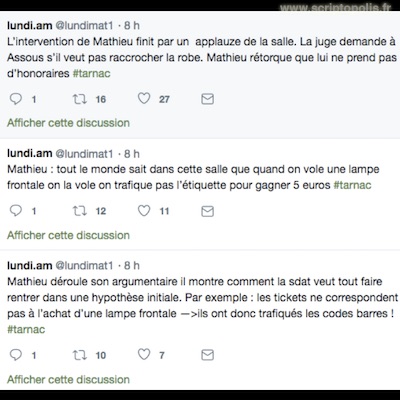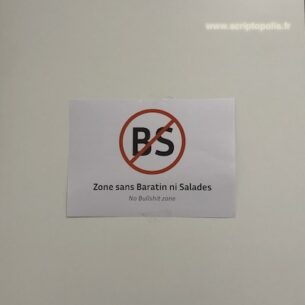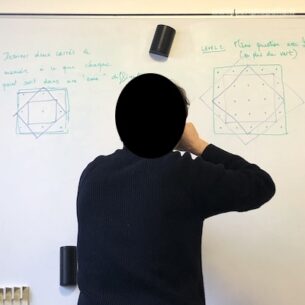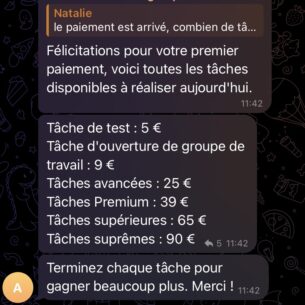Minutes

Paris & Twitter, March 2018.
In French Law, the criminal trial is one of the places where orality is sacred. You don’t skip through files in all directions, you do not spread the thousands of pages of the instruction, only words exchanged and debates matter. The hic et nunc is so important that it is usually forbidden to photograph, film or record the proceedings of the trial by any means.
So for those who are not there, prevented from entering by the exiguity of the courtrooms or simply being far away, only remain various accounts: drawings of hearings, truncated quotations and epic narratives have made the salt of the press for two centuries, while only fiction allowed to touch the duration and thickness of the judicial truth.
Then the live tweet came! Minute after minute, statements, impressions, comments follow one another, giving access to the reader, almost directly, to this previously opaque arena. Through a timeline turned up with a mouse or a thumb, we discover that an accused pleads so well that the judge would come to propose him as lawyer. Is it caused by the incongruity of the monstrous Tarnac affair or what other surprises would await us, to read justice by instantaneous fragments rather than in its solemnly written judgments?






